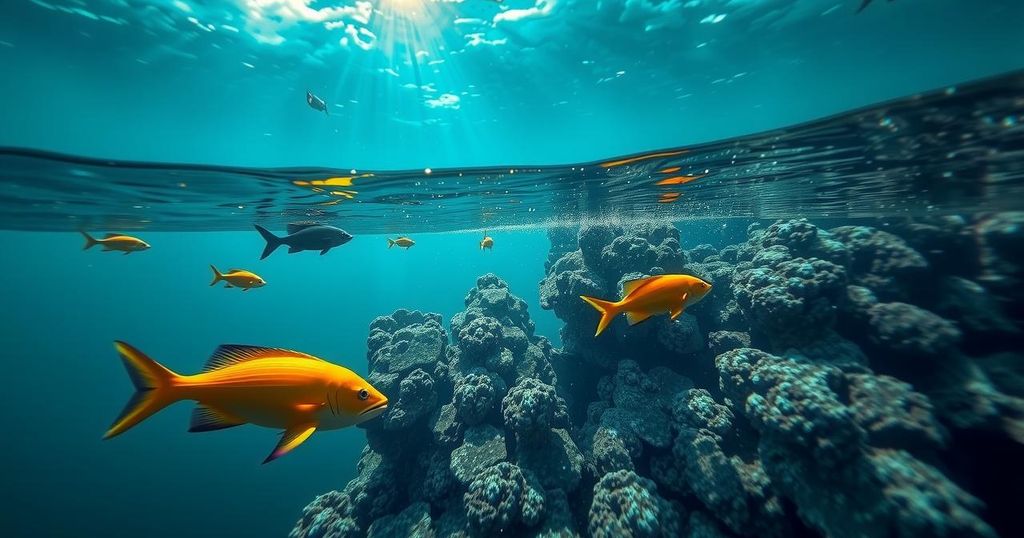Climate Change Threatens Whale Sharks with Increased Collision Risks

Research shows that climate change is increasing the risk of fatal collisions between whale sharks and cargo vessels. Tracking 348 whales over 15 years revealed a potential 43% increase in collision risk by 2100 if greenhouse gas emissions continue to rise. Despite protections, whale shark populations have declined by over 50% over past decades due to factors such as overfishing and climate change. Solutions include enforcing speed limits for ships in collision-prone areas to enhance the safety of whale sharks in their migratory routes.
Recent research indicates that climate change is significantly increasing the risk of fatal collisions between whale sharks and large cargo vessels in busy shipping lanes. Whale sharks, the largest fish in the world, are particularly vulnerable to ship strikes, a situation exacerbated by rising ocean temperatures. A study tracking 348 whale sharks over 15 years revealed that if greenhouse gas emissions continue to rise unchecked, the likelihood of such collisions could escalate by as much as 43 percent by the year 2100. Whale sharks are migrating toward cooler waters, shifting their range up to 1,000 kilometers from their current tropical habitats. This migration may lead them to densely trafficked shipping routes along the western United States, Sierra Leone, and the eastern China Sea, where the risk of collisions is highest. Despite various protections implemented over the past decades, including regulations that recognized the economic benefit of ecotourism, whale shark populations have still dropped by over 50 percent, primarily due to past overfishing and current dangers from traffic. A critical finding from recent studies has confirmed that a high percentage of whale sharks frequently overlap with shipping lanes, suggesting a direct link to their declining numbers. To mitigate these collisions, researchers advocate for implementing speed restrictions for large vessels in high-risk areas, echoing successful strategies applied to protect other endangered marine species. Moving forward, it is essential to enhance the understanding of how climate change interacts with human maritime activities to protect vulnerable species and preserve biodiversity in our oceans.
The impact of climate change on marine ecosystems is a pressing concern, evidenced by the shifting distributions of marine species like the whale shark. As global temperatures rise, many marine species are compelled to pursue cooler waters, inevitably leading to increased interactions with human activities, particularly shipping. Whale sharks represent a unique case study; being the largest fish in the ocean, they face significant threats from vessel collisions due to their natural habits and slow movement. Their ongoing decline also illustrates the complex interplay of anthropogenic pressures on marine life, particularly from industries profoundly influenced by fossil fuel reliance.
In conclusion, the alarming findings of the recent study shed light on the critical intersection of climate change and human activity affecting whale shark populations. With predictions showing a significant increase in collision risks, it is vital to implement effective protection measures, such as speed regulations for ships in vulnerable areas. These proactive steps are essential to safeguarding not only whale sharks but also the broader marine ecosystem amidst the ongoing challenges posed by climate change.
Original Source: www.conservation.org






